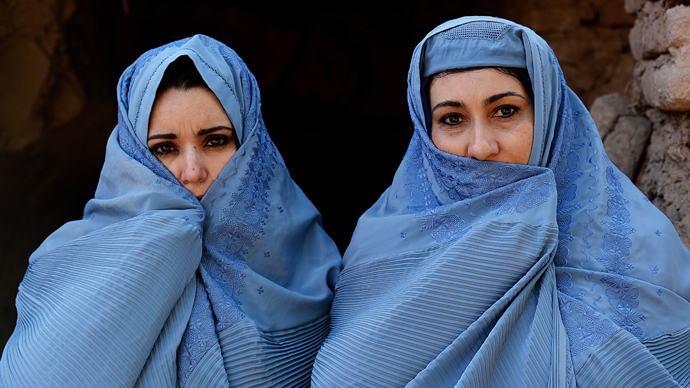Afghan Women Again Marginalised in Post Poll Decision Making
The continuing marginalization of Afghan women

KABUL: Only a few weeks ago, Afghans defied Taliban threats and, as one nation, bravely flocked to the polls to elect their new President. It was a process that Afghans welcomed with pride and optimism; a chance to prove to the world their commitment and capacity to give wings to their infant democracy.
Unfortunately, weeks after the much anticipated declaration of final election results, the Independent Election Commission and the United Nations are still embroiled in a messy audit to invalidate fraudulent votes that were allegedly perpetrated by the camp of Presidential aspirant Ashaf Ghani. National pride and optimism have morphed overnight into a sense of shame, exasperation and anxiety as the feuding political parties fail to rise above their vested interests for the sake of the nation they both profess to serve. Protracted uncertainty has been creating broad fragmentation across ethnic and political lines that could escalate anytime into a civil turmoil.
Against this backdrop, outgoing President Hamid Karzai has conveniently assumed a lame duck posturing instead of using his clout to unify the nation and heal the wounds created by the past election. It is a precarious situation fuelled by poor statesmanship of the candidates and weak leadership of the outgoing President who is more engrossed with making peace with the Taliban than in facilitating an orderly transition. For months, post-election issues have been hugging the headlines of popular media, as if nothing else matters.
Yet, beneath the squabbles of the two presidential aspirants and their supporters are real life issues that are paramount to the people who voted for them. Some 11 million Afghans (36 percent of the population) continue to live below the poverty line; 86 percent of urban population still lives in slums; 30 percent of all Afghans survive each day with serious calorie deficiency; the economy is failing to meet its growth target; and the country faces major economic challenges with the imminent draining of international resources. Meanwhile, enemies of the state are gathering strength and the flawed peace program of the government have brought within communities some 8,551[1] Taliban combatants and 65 ex-convicts who were known to be involved in past bombing incidents – all without undergoing a de-radicalization process. In more advanced democracies, the government could be tried for treason and massive violation of peoples’ right to security.
Sadly, although women actively worked to make the election a successful democratic exercise, they were again easily sidetracked in the post-election scenario. The issues are being discussed and resolved among men and the rhetoric of women’s participation and empowerment before the election instantly dissipated. Worse, the actions women expect from government, such as the immediate enactment of the decree on the elimination of violence against women, have fallen hostage to delayed announcement of the final poll results.
Women therefore urge the IEC and UN to expedite the poll audit to fill the vacuum in national leadership. It is time to wrap up the election mess and build unity around enduring peace and development. Women also reiterate their plea to reconsider the peace and reintegration program of Karzai with the Taliban and investigate the impacts of returning talibans to local security and women’s rights. Peace and security of Afghan citizens should be the prime consideration if the new government wishes to thread the path of sustainable peace. Finally, the talks about a national unity government should not be confined to the two contending presidential candidates alone. More than them, the people have the right to be heard in its conceptualization. Women wish to be part of this debate and their enlightened views matter significantly, especially when men’s leadership have been making it difficult for Afghans to see the dawning of a brighter horizon.


